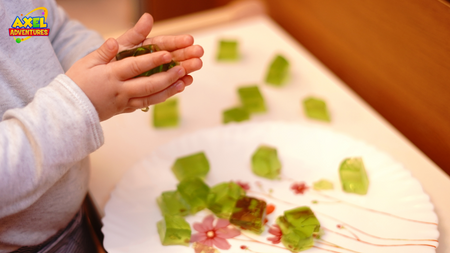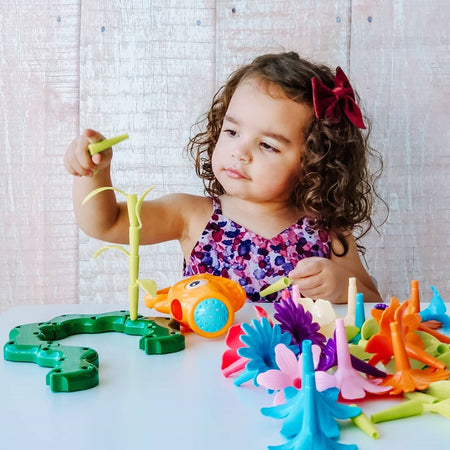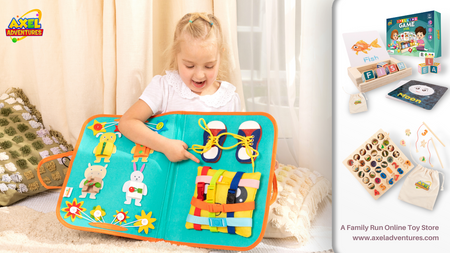
As parents, we all want the best for our children. We strive to provide them with a nurturing and supportive environment that fosters their growth and development. One of the most effective ways to do this is by implementing routines and schedules in our children's lives. In this blog post, we'll explore the importance of routines and schedules for toddlers and preschoolers and how they can help support their cognitive and social development.
Sleep Routines for Toddlers
Sleep is a crucial aspect of any child's development, and toddlers are no exception. Establishing a consistent sleep routine can help your toddler feel more secure and relaxed, making it easier for them to fall asleep and stay asleep. A sleep routine can include activities like reading a book, singing a lullaby, or taking a bath before bedtime. It's important to be consistent with the routine, even on weekends or vacations, to help your toddler's body clock adjust.
Morning Routines for Toddlers
Just like sleep routines, morning routines can also be beneficial for toddlers. A consistent morning routine can help your child transition from sleep to wakefulness and prepare them for the day ahead. A typical morning routine may involve getting dressed, eating breakfast, and brushing teeth. As with sleep routines, consistency is key to help your toddler feel more secure and prepared for the day.

Schedule for Preschoolers at Home
Once your child enters preschool, they will have a more structured schedule to follow. However, it's still important to establish a consistent schedule at home to help support their development. A typical schedule for preschoolers may include time for play, snacks, meals, naps, and educational activities. By having a schedule, children can develop a sense of routine and predictability, which can help them feel more secure and prepared for the day.
Schedule for Toddlers at Home
Even if your toddler isn't attending preschool yet, having a schedule can still be beneficial. A consistent schedule can help your child feel more secure and provide a sense of predictability. A typical schedule for toddlers may include time for play, meals, naps, and educational activities. By having a schedule, toddlers can develop a sense of routine, which can help them feel more confident and prepared for the day.
Cognitive Development Activities
In addition to routines and schedules, it's important to engage your child in activities that support their cognitive development. Cognitive development involves the processes by which children learn, think, and understand the world around them. Activities that support cognitive development may include puzzles, games, or reading books. By engaging in these activities, children can develop important skills such as problem-solving, language development, and critical thinking.

Social Skills Development
Social skills are another crucial aspect of any child's development. Social skills refer to the ability to interact with others, communicate effectively, and form relationships. Activities that support social skills development may include playing with other children, engaging in group activities, or participating in team sports. By engaging in these activities, children can develop important skills such as empathy, communication, and cooperation.
Cognitive Development Stages
It's important to note that cognitive development occurs in stages, and each stage is characterized by certain milestones. For example, during the sensorimotor stage (birth to 2 years), children learn through their senses and develop object permanence. During the preoperational stage (2 to 7 years), children develop language and symbolic thought. By understanding the different stages of cognitive development, parents can choose appropriate activities to support their child's development.
Conclusion
In conclusion, routines and schedules can be a powerful tool in supporting a child's cognitive and social development. By establishing consistent sleep and morning routines and schedules for toddlers and preschoolers, children can develop a sense of routine and predictability, which can help them feel more secure and confident. In addition to routines and schedules, engaging children in activities that support cognitive and social development can further enhance their growth and development.

As parents, it's important to understand the different stages of cognitive development and choose appropriate activities to support our child's growth. By providing a supportive and nurturing environment that includes routines, schedules, and engaging activities, we can help our toddlers and preschoolers thrive.
If you're looking for ideas on how to support your child's development, consider checking out our online shop for educational toys and games. We also have a variety of informative blog posts on topics such as parenting tips, child development, and more. Thank you for reading, and we hope this post has been helpful in supporting your child's growth and development.







